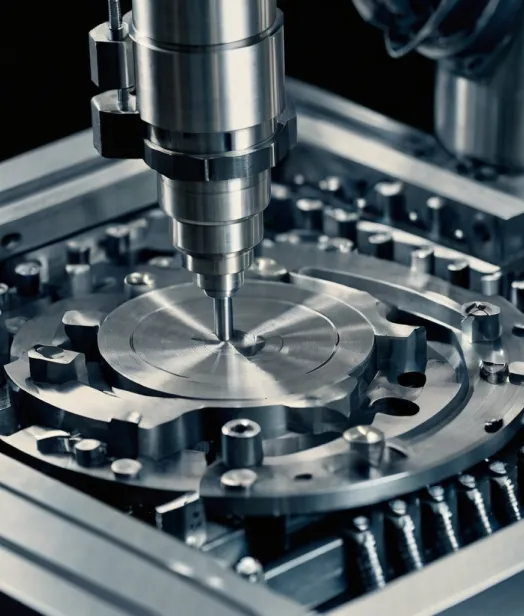
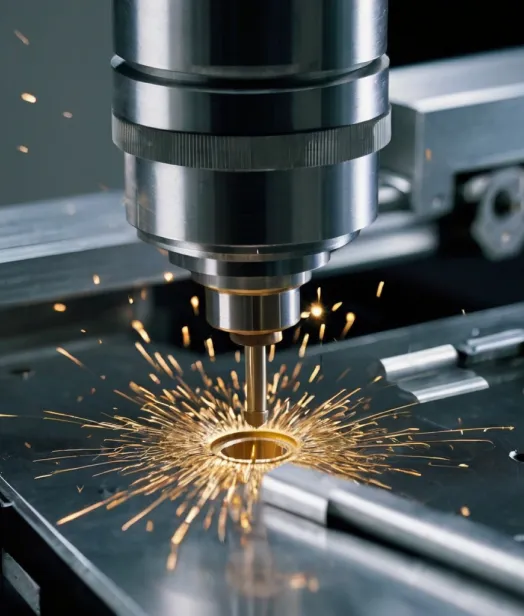
In today's world of advanced manufacturing, CNC machining technology stands as a cornerstone of precision, efficiency, and innovation. Whether you're an industry expert or just beginning to explore the world of manufacturing, understanding CNC (Computer Numerical Control) is crucial. This article delves deep into what CNC Machining is, how it works, and why it’s essential in modern manufacturing.
CNC, or Computer Numerical Control, refers to the automation of machine tools using computers to execute pre-programmed sequences of machine control commands.
This technology has revolutionised manufacturing by allowing for the precise control of tools like lathes, mills, routers, and grinders, among others.
CNC machining is a subtractive manufacturing process where the machine removes materials from a workpiece to create the desired shape.
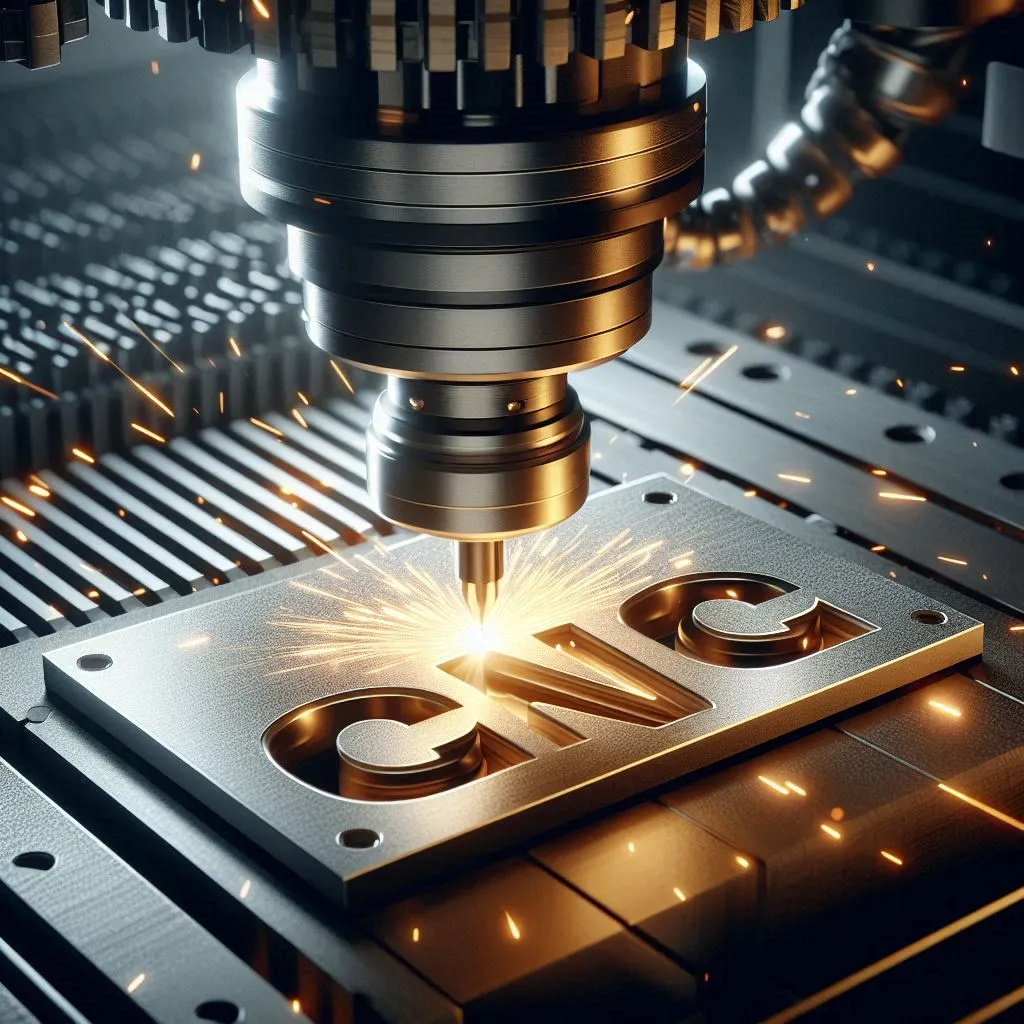
The concept of CNC originated in the 1940s and 1950s, evolving from earlier technologies such as punch tape and servo motors used in manufacturing. Initially, machines were manually operated, requiring skilled labor to control every movement. As technology advanced, the integration of computers into machining processes led to the development of CNC machines. Today, CNC machining is at the forefront of manufacturing, enabling high precision, repeatability, and efficiency in producing complex parts.
At its core, CNC machining involves programming a computer to control the movement and operation of a machine tool. The process begins with the creation of a digital design using CAD (Computer-Aided Design) software. This design is then converted into a series of instructions, known as G-code, that the CNC machine can understand.
Components of CNC Machining
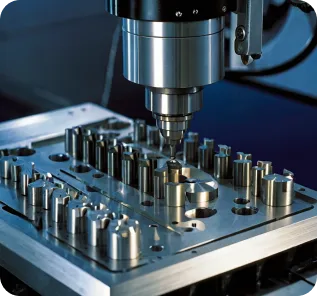
Engineers and designers create a 3D model of the part using CAD software. This model serves as the blueprint for the machining process.
The CAD model is imported into CAM (Computer-Aided Manufacturing) software, which generates the G-code. This code instructs the CNC machine on how to move and what operations to perform.
The workpiece is secured in the machine, and the appropriate cutting tools are installed. The machine is then calibrated to ensure accuracy.
The CNC machine follows the G-code instructions to remove material from the workpiece, shaping it into the desired form.
After the machining process, additional steps like deburring, polishing, or coating may be performed to achieve the final product.
The finished part is inspected to ensure it meets the required specifications. This can involve measurements, testing, and visual inspection.
CNC milling machines are among the most versatile CNC machines, used to cut and shape materials like metal, plastic, and wood. They operate by rotating a cutting tool and moving the workpiece along multiple axes to create complex shapes. CNC mills are commonly used in industries like aerospace, automotive, and electronics.
CNC lathes are designed for rotational parts, such as shafts, cylinders, and threaded components. In a CNC lathe, the workpiece rotates while a stationary cutting tool removes material. CNC lathes are highly efficient for producing symmetrical parts and are widely used in industries like automotive and medical devices.
CNC routers are similar to CNC mills but are typically used for cutting softer materials like wood, plastics, and composites. CNC routers are popular in industries such as furniture making, sign making, and cabinetry, where intricate designs and patterns are required.
CNC grinders are used for precision grinding operations, removing material with an abrasive wheel to achieve a fine surface finish. These machines are essential in industries like aerospace, automotive, and tooling, where surface quality and dimensional accuracy are critical.
After the machining process, additional steps like deburring, polishing, or coating may be performed to achieve the final product.
Electrical Discharge Machining (EDM) is a process where material is removed from a workpiece by electrical discharges (sparks). CNC EDM machines are used for creating intricate shapes and features in hard materials like tool steel and carbide. They are commonly used in mold-making and aerospace applications.
CNC machines are renowned for their ability to produce parts with exceptional precision and accuracy. They can achieve tolerances as tight as ±0.001 inches, ensuring that each part meets exact specifications. This level of precision is crucial in industries like aerospace, medical devices, and automotive, where even minor deviations can lead to significant problems.
One of the standout features of CNC machining is its ability to produce identical parts consistently. Once a CNC machine is programmed, it can replicate the same part over and over with minimal variation. This consistency is vital for large-scale production and ensures that every part meets the same high standards.
CNC machining is highly efficient, capable of producing parts much faster than manual machining. The automation of the process reduces the need for human intervention, allowing for continuous operation and faster turnaround times. This efficiency is particularly beneficial in industries with tight production schedules.
CNC machines are incredibly versatile, capable of performing a wide range of operations, including drilling, milling, turning, and grinding. This flexibility allows manufacturers to produce complex parts with intricate geometries in a single setup, reducing the need for multiple machines and processes.
While the initial investment in CNC machines can be high, the long-term cost savings are significant. The automation of the process reduces labor costs, and the ability to produce parts quickly and accurately minimises material waste. Additionally, CNC machining eliminates the need for expensive tooling, making it cost-effective for both low and high-volume production runs.
CNC machining enhances safety in the manufacturing environment. Since the process is automated, the operator is not required to be near the cutting tools, reducing the risk of accidents. CNC machines also come equipped with safety features, such as emergency stop buttons and protective enclosures, further enhancing workplace safety.

Precision is at the core of CNC machining and is what sets this technology apart from other manufacturing methods. CNC machined capabilities allow for producing parts that adhere to exact specifications, whether working with steel, aluminium, or other materials, ensuring each part is a perfect match for its intended application.
With our variety of CNC machining services, including milling, 3D printing, and prototyping, we support every step of design and production. From initial concept to final part, our commitment to precision and quality stands strong, making us the ideal partner for projects across a range of types and industries & sectors, including sponsorship opportunities.
In industries where accuracy is critical, such as aerospace, medical devices, and automotive, CNC precision is non-negotiable. The slightest deviation from specifications can lead to parts that don’t fit or function properly, resulting in costly rework, delays, or even product failure.
CNC precision engineering ensures that each part is produced to the highest standards, reducing the risk of defects and improving overall product quality.
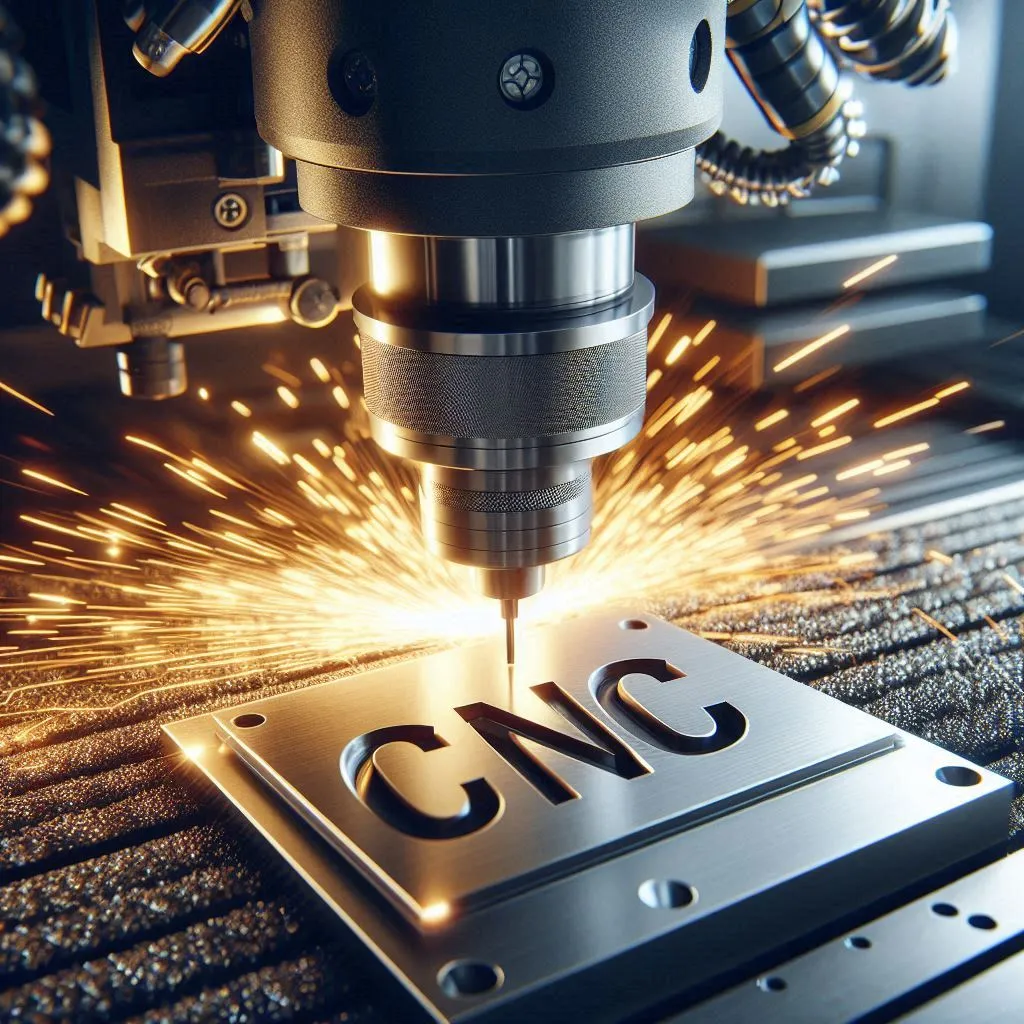
Achieving CNC precision requires a combination of advanced technology, skilled operators, and rigorous quality control. Modern CNC machines are equipped with high-resolution encoders, feedback systems, and advanced software that allow for precise control of tool movement. Skilled operators play a crucial role in setting up the machines, selecting the appropriate tooling, and ensuring that the machine is properly calibrated.
Quality control is an integral part of the CNC machining process. It involves regular inspection of the parts being produced to ensure they meet the required specifications. This can include dimensional checks using precision measuring tools, surface finish inspections, and material testing. Quality control ensures that any deviations are detected early, allowing for corrections to be made before a large batch of parts is produced.
CNC machining has become the backbone of modern manufacturing, enabling the production of complex, high-quality parts at scale. Its impact can be seen across a wide range of industries, from aerospace and automotive to medical devices and consumer electronics.
The aerospace industry demands the highest levels of precision, reliability, and safety. CNC machining is used to produce critical components such as turbine blades, engine parts, and structural elements that must withstand extreme conditions. The ability to produce lightweight, high-strength parts with tight tolerances makes CNC machining an essential technology in aerospace manufacturing.
In the automotive industry, CNC machining is used to produce a wide range of parts, from engine components to transmission parts and body panels. The high precision and repeatability of CNC ensure that each part fits perfectly and functions reliably, contributing to the overall performance and safety of the vehicle.
The medical device industry requires absolute precision and cleanliness in the manufacturing process. CNC machining is used to produce surgical instruments, implants, and diagnostic equipment that must meet strict regulatory standards. The ability to machine complex geometries with tight tolerances is crucial in ensuring the safety and efficacy of medical devices.
We use CNC technology to machine precise components for the oil and gas industry, including hydrocarbon sensors and fuel delivery systems. Our expertise ensures high accuracy, safety, and efficiency, meeting industry standards for quality and performance..
CNC machining is also widely used in the production of consumer products, from smartphones and laptops to household appliances and sporting goods. The precision and flexibility of CNC machining allow for the production of high-quality, aesthetically pleasing products that meet the demands of today’s consumers.
CNC machining is a cornerstone in modern manufacturing, delivering unparalleled precision, consistency, and efficiency to industries like aerospace, automotive, medical devices, and electronics. This versatile technology powers a range of applications, especially when it comes to milling and turning techniques, both of which are essential in shaping metal and other materials with unmatched accuracy. At the heart of CNC machining is the ability to adhere to exacting specifications, consistently creating parts that meet the highest standards of quality and performance.
CNC Machining: Revolutionising Precision and Efficiency
CNC machining has revolutionised the way components are manufactured. In the past, the production of complex parts required extensive manual work and meticulous attention to detail. CNC, or Computer Numerical Control, introduced a new era where machines execute tasks automatically according to precise digital designs. This shift has allowed manufacturers to achieve a level of accuracy and repeatability that was previously unimaginable.
The two primary CNC machining methods are milling and turning. CNC milling involves rotating a cutting tool to remove material from the workpiece, enabling the creation of detailed shapes and complex features. Conversely, turning involves rotating the workpiece itself while a cutting tool shapes it. Together, these techniques enable manufacturers to achieve a range of geometries and surface finishes that cater to various industries' unique requirements.
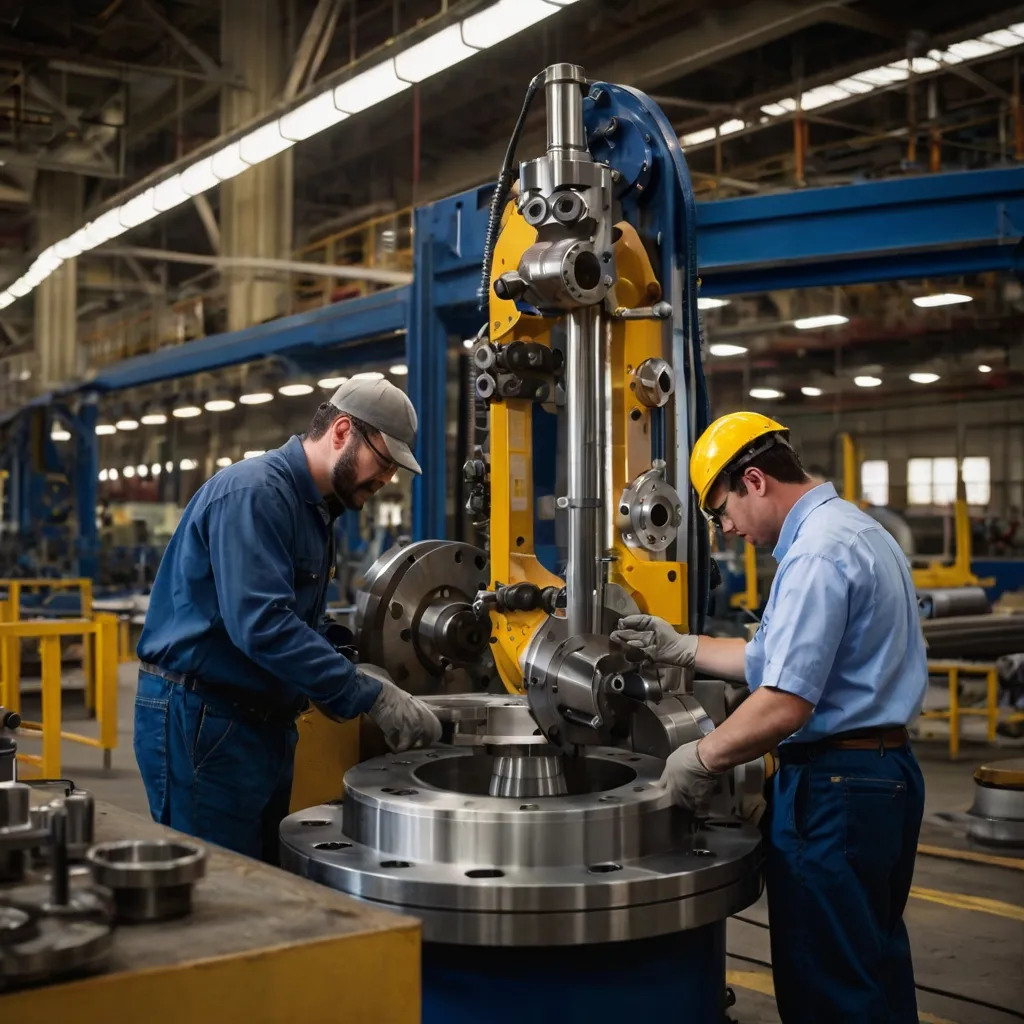
The Power of CNC Milling and Turning
Both milling and turning provide flexibility and precision essential for today’s competitive landscape. CNC milling, for example, is widely used in the aerospace sector to produce intricate parts with high tolerances. This technique is ideal for components with complex shapes, as it enables the creation of features like slots, pockets, and threads. CNC turning, on the other hand, is crucial in industries like automotive and medical devices where cylindrical parts, such as shafts and surgical implants, are required.
The Role of CNC Machining in Different Industries
1. Aerospace: Precision is critical in aerospace, as even the smallest discrepancies can lead to failures. CNC machining offers the precision needed to manufacture complex components such as turbine blades and engine parts.
2. Automotive: From gears to engine components, CNC turning and milling are indispensable for creating parts that withstand high stress and temperatures.
3. Medical Devices: In the medical field, CNC machining enables the production of parts with extreme accuracy, critical for implants, prosthetics, and surgical instruments.
4. Electronics: The electronics industry benefits from CNC’s precision for producing small, intricate parts that fit within devices and ensure proper functionality.
Why Choose CNC Machining for Your Project?
When it comes to CNC machined capabilities, few methods offer the same level of flexibility, speed, and precision. Here’s why cnc maching is often the preferred choice:
1. Precision and Consistency: CNC machining provides exceptional control over dimensions, tolerances, and repeatability.
2. Efficiency: CNC machines are capable of producing parts rapidly, reducing lead times significantly.
3. Complex Designs: Whether you need intricate patterns or specialised features, CNC milling and turning can achieve them without compromising quality.
4. Versatility: CNC machines can work with a variety of materials, including metals like steel and aluminium, as well as plastics, composites, and more.
CNC Milling and Turning Services: Our Expertise
Our team specialises in machining, with extensive experience in both milling and turning operations. We understand the importance of precision in every aspect of the process. Our C.N.C. Machines are equipped with the latest machining technology, allowing us to deliver top-quality precision components for a range of applications.
CNC Milling Services: Our
CNC milling services allow us to create complex shapes and precise cuts, making it ideal for custom parts and
prototypes. Whether you’re in aerospace, medical, or consumer electronics, our milling capabilities will meet your specifications. CNC Turning Services: With CNC turning, we produce cylindrical parts with exacting standards, suited for applications in automotive and other high-performance industries. Our turning operations are highly versatile, accommodating a range of materials and design requirements.
Benefits of Choosing Us for Your CNC Machining Needs
1. Expertise and Experience: Our team of skilled precision engineers is committed to delivering the best results for each project.
2. Advanced Technology: We utilise the latest cnc machine technology to ensure high accuracy and efficiency.
3. Quality Assurance: Each component undergoes rigorous quality checks to ensure it meets industry standards.
4. Custom Solutions: We tailor our CNC machining services to your business needs, whether it’s a small batch production or a large-scale manufacturing run.
If you’re looking for a partner to bring your design to life with CNC precision, contact us today to learn more about our milling, turning, and machining services. With us, your project is in expert hands, ensuring quality, efficiency, and unmatched precision.
At our company, we provide a comprehensive range of services designed to meet the diverse needs of industries that require precision and high-quality machining operations. Our services cover everything from CNC machining and casting to prototyping, production, and finishing, offering complete solutions tailored to your specific requirements.
CNC Machine Services
CNC machine operations form the backbone of our manufacturing processes. Using advanced machines and tools, we perform a variety of machining operations, including turning, routing, and milling, to produce parts with high accuracy and tight tolerances. These operations are ideal for creating complex geometries in a variety of materials, including steel, aluminium, and other metals. Our CNC machines work with multiple axes, allowing for precision in every aspect of the machining process. We also offer computer-aided design (CAD) and computer-aided manufacturing (CAM) services to streamline the production of parts from initial design to final machining.
Casting, Extrusion, and Moulding
Casting is a critical part of our services for producing high-quality parts and components. We specialise in aluminium die casting and aluminium extrusion, processes that allow us to create complex shapes while maintaining strength and durability. Aluminium die casting, for example, is used to produce lightweight parts with excellent surface finishes and minimal waste. Similarly, aluminium extrusion enables us to create long sections of uniform cross-section, which can be cut and finished to the required specifications.We also provide injection moulding and sheet metal moulding services, ideal for high-volume production of parts that need to meet exacting standards. Whether it’s for creating intricate shapes or simple components, our moulding processes deliver consistent, reliable results every time.
Precision Parts and Components
From small, precision parts to large, bespoke components, we are equipped to handle a wide range of machining needs. Our operators and technicians are highly skilled in working with a variety of metals, including aluminium, steel, and alloys, ensuring that the parts we produce meet the highest standards. Whether it’s a single prototype or a high-volume production run, we provide parts that meet exact tolerances and surface finish requirements. In addition to machining, we offer part inspection services to ensure that every piece meets the stringent quality control standards required by industries such as aerospace, automotive, medical, and oil and gas. Our inspection process includes dimensional checks, surface quality evaluations, and performance testing, all aimed at ensuring that the final product is of the highest quality.
Aluminium and Steel Machining Operations
We have significant experience working with both aluminium and steel in our machining operations. Aluminium is particularly popular for applications requiring lightweight materials with good strength-to-weight ratios, and we offer services in aluminium machining, aluminium die casting, and aluminium extrusion. Steel, on the other hand, is widely used for applications that demand high strength and durability. Our machining services cover everything from standard steel parts to more complex applications requiring advanced machining techniques.
Prototyping and Custom Design
In addition to our production services, we offer prototyping and custom design solutions. We work closely with our clients to turn their ideas into fully functional parts. Our CAD software enables us to work with designs in a digital format, ensuring that prototypes are made with precision before mass production begins. Our expertise in CNC machining also ensures that prototypes are produced quickly, allowing for faster testing and validation.Whether you need a one-off prototype or a custom-designed part, we offer bespoke solutions that cater to your specific needs. Our engineers are skilled at adapting designs to optimise the manufacturability of parts, ensuring cost-effectiveness and operational efficiency.
Tooling and Cutting Tool Services
The right cutting tool is crucial for successful machining operations. We offer a full range of tooling and cutting tools, including carbide tools, high-speed steel (HSS) tools, and custom-designed tooling for specific applications. By using state-of-the-art tools, we ensure that each machining operation is carried out efficiently and produces parts with the desired finish and tolerances.Our operators are skilled at selecting the appropriate cutting tools for each job, whether it’s for turning, milling, or other machining processes. The tools we use are carefully maintained to ensure consistent performance, and we regularly update our equipment to incorporate the latest advancements in cutting tool technology.
Machining Operations and Process Optimisation
Our machining operations are designed to maximise efficiency and precision. From initial workpiece preparation to the final finish, each step of the process is carried out with the utmost care. We specialise in various machining operations, such as turning, milling, routing, and drilling, to handle a wide range of materials and geometries. Our state-of-the-art CNC machines provide the flexibility to perform multiple operations in a single setup, minimising the need for manual intervention and improving overall productivity.We also work to optimise machining processes to reduce costs while maintaining high quality. Our team of experts continually monitors and adjusts processes to ensure that the operation is as efficient as possible, whether it’s adjusting cutting speeds, selecting the right tools, or refining machine settings. This focus on process optimisation allows us to deliver parts faster and at lower cost, giving our clients a competitive edge.
Volume Production and Cost-Effective Solutions
For high-volume production runs, we provide cost-effective machining solutions without compromising on quality. Our machines are capable of handling large quantities of parts while maintaining consistency across every piece. By streamlining production processes and utilising advanced technology, we can lower costs for our clients while meeting the tightest delivery schedules.Whether it's aluminium die casting, sheet metal machining, or CNC turning, our high-volume capabilities ensure that clients receive their parts on time and within budget. We also offer flexible production schedules to accommodate both short-run and long-run production requirements.
Tolerances and Quality Assurance
Precision is a key factor in our machining operations. We work with tight tolerances to ensure that every part meets the specifications provided by our clients. Our quality assurance processes include dimensional inspections, surface finish evaluations, and functional testing to verify that parts are of the highest quality.Each part is inspected for dimensional accuracy, surface quality, and overall functionality, ensuring that it performs as intended. We use advanced inspection equipment and methods, including 3D scanning and coordinate measuring machines (CMM), to guarantee that every part meets the required tolerances.
Applications Across Industries
Our services are used in a variety of industries, including aerospace, automotive, medical, oil and gas, and manufacturing. Whether it's for prototyping, small-batch production, or large-scale manufacturing, our CNC machining operations can be tailored to meet the specific needs of each industry. In aerospace, for example, precision and reliability are essential, and our experience in machining complex parts ensures that we deliver components that meet the highest safety standards. In automotive, we help produce durable and high-performance parts that withstand extreme conditions. In medical applications, we ensure that parts meet the exacting standards required for devices and equipment. And in oil and gas, our CNC machining and casting services provide critical components used in exploration, drilling, and production operations.
Summary
Our company offers a broad range of services, including CNC machining, casting, moulding, prototyping, and finishing, to create high-quality parts and components. With expertise in aluminium and steel machining, as well as advanced tooling and cutting techniques, we are capable of producing precise, cost-effective solutions for a wide range of industries.From small-batch prototypes to high-volume production, our CNC machines and operators ensure that every part meets the tightest tolerances and quality standards. Whether it's for aerospace, automotive, medical, or oil and gas applications, we are dedicated to delivering superior results that exceed customer expectations.
1. What does CNC stand for in CNC machining?CNC stands for Computer Numerical Control.
This technology allows machines to execute precise tasks based on digital instructions, enabling automation and consistency in manufacturing.
2. How is CNC machining different from traditional machining?
CNC machining uses computer control to operate tools, providing higher precision and repeatability than traditional manual methods. This reduces human error and enables faster production, making it ideal for complex or high-volume manufacturing.
3. What materials can CNC machines work with?
CNC machines are versatile and can work with a range of materials, including metals (like aluminium, steel, and titanium), wood, composites, and ceramics. However, softer materials like plastics are less common for precision CNC due to specific durability needs.
4. Which industries commonly use CNC machining?
CNC machining is widely used in aerospace, automotive, medical devices, electronics, and consumer products. Its precision and efficiency make it suitable for manufacturing parts that require strict quality standards and detailed designs.
5. Is CNC machining cost-effective for small production runs?
Yes, CNC machining can be cost-effective for both small and large production runs, depending on the project's needs. It minimises material waste, reduces labor costs, and speeds up production, which lowers overall expenses.
Contact our friendly team today for expert CNC machining, CAD, CAM, prototyping, and 3D printing services. We’re here to help bring your ideas to life with precision and quality. Whether you need custom parts or innovative design solutions, our experienced professionals are ready to assist you. Get in touch now to discuss your project and how we can support your manufacturing needs., depending on the project's needs. It minimises material waste, reduces labor costs, and speeds up production, which lowers overall expenses.